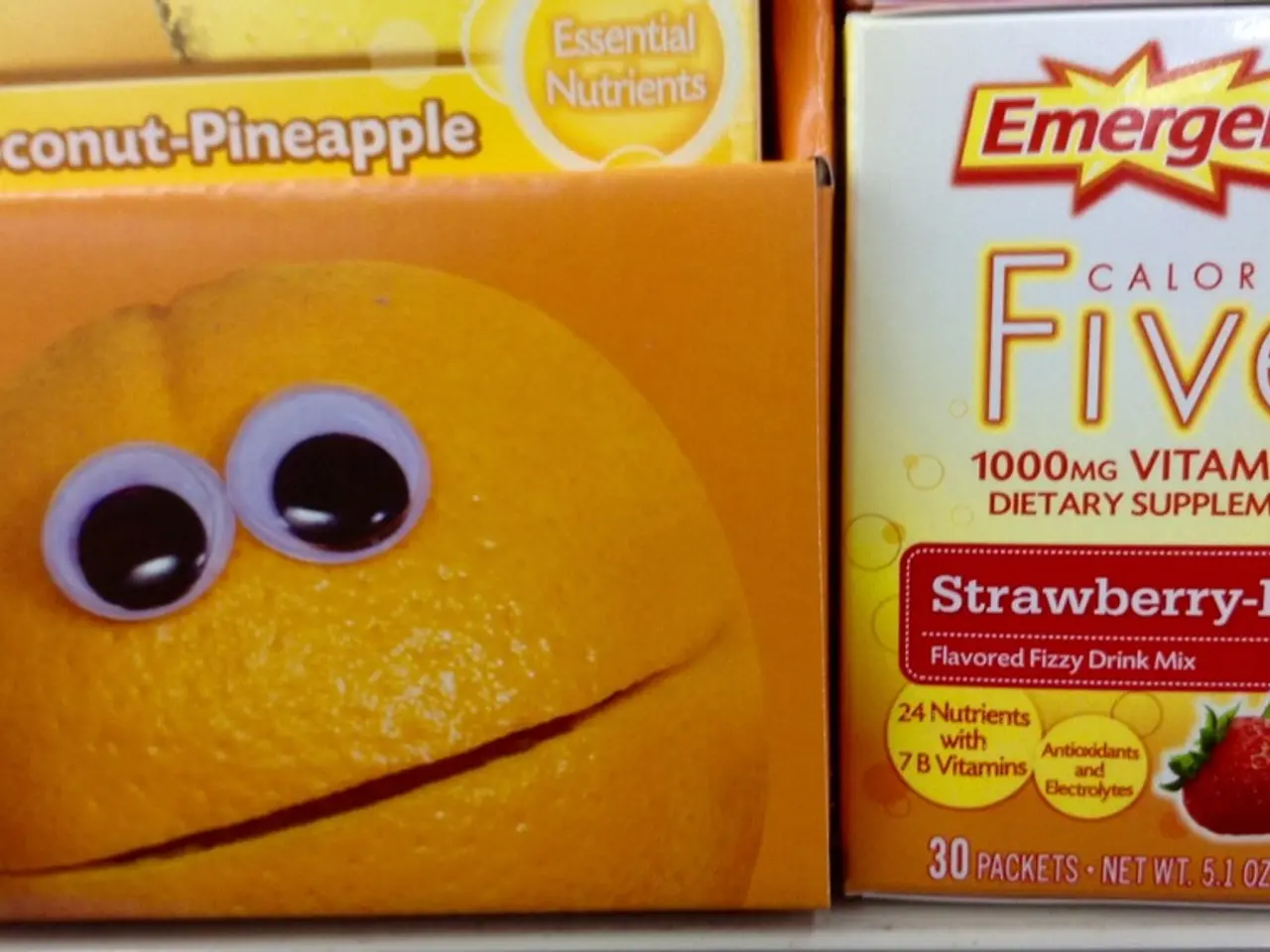Product title requires modification: DM's Misleading Product Name
In a recent ruling, the Regional Court of Karlsruhe has decided that the German drugstore chain dm is not allowed to label a children's fruit drink as "Immun Smoothie". The decision was made on August 14, 2025, following a complaint filed by the consumer organization Foodwatch.
The product in question is a mixture of apple, banana, and strawberry puree, containing added vitamins and ten percent sugar. Foodwatch criticized the product for its misleading label, stating that it misleads parents into believing that the drink has health benefits that are not scientifically substantiated.
According to the EU Health Claims Regulation, health-related advertising claims must be scientifically proven. In this case, the court ruled that dm's labeling of an "Obst-Quetschie" (fruit puree snack) as an "Immun-Smoothie for children" was misleading and violated the regulation. The term "Immun-Smoothie" suggests health benefits that were not supported by scientific evidence, and the overall presentation implied health-promoting effects that the product did not have, especially for children.
The court's decision does not address the composition of the fruit puree itself, only the labeling. Foodwatch also criticized the product for being unhealthy and overpriced, highlighting concerns about marketing products with added sugar and vitamin supplements as "immune-boosting" to parents, which may mislead and exploit them.
Under EU regulations, health claims on food products, including those for children, must be scientifically substantiated. Labels and packaging must not mislead consumers, especially vulnerable groups like children and their caregivers. Any permitted health claim (e.g., "Vitamin D supports the immune system") must be clearly visible and not be undermined by unsubstantiated or exaggerative claims.
This case exemplifies enforcement of these rules to protect consumer interests and ensure truthful marketing in children's food products. Foodwatch's statement also criticized the product for potentially emptying parents' wallets, emphasizing the importance of transparency and honesty in food labeling and marketing.
The ruling in the case, with the case number 14 O 13/25 KfH, is not yet final. However, it serves as a reminder to food manufacturers to ensure that their products are labeled accurately and honestly, particularly when marketing to children.







